Peopling the colony: inclusion and exclusion
This entry recommends places to find information about the history of immigration to Tāmaki Makaurau and New Zealand. This includes immigration laws and changes, the role of Māori in immigration, and the government's attempt to set right past injustices.
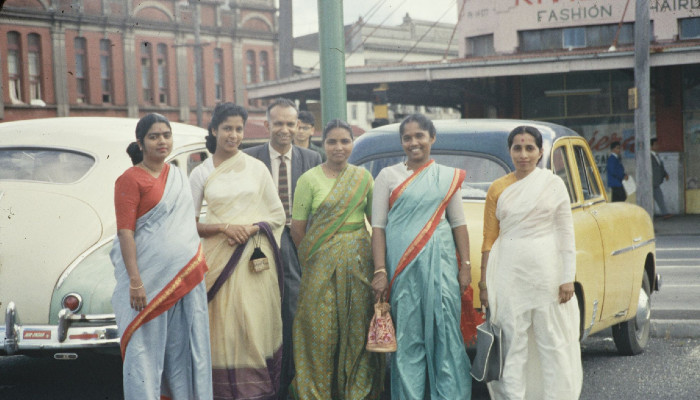
Image: Group of Indians, 1962 by [Unknown]. Collection: Auckland Libraries Heritage Collections 1851-004
Keywords
Here is a list of some keywords to help you find information on the history of immigration, including laws and policies on immigration to Aotearoa New Zealand. Use this list when searching the collections and websites in this entry.
New Zealand Association: Started by Edward Gibbon Wakefield in 1837, it was called the New Zealand Company in 1839. The company brought British immigrants to New Zealand.
Vogel Immigration Scheme: An assisted immigration programme started by Colonial Treasurer Julius Vogel in 1870.
Chinese Immigrants Act 1881: Imposed a Poll Tax on Chinese immigrants. This made Chinese people pay large amounts of money to come to New Zealand.
Imbecile Passengers Act 1882: Restricted people who were deaf, had physical disabilities, mental health issues, or learning disabilities from immigrating to New Zealand.
Immigrants: People who come to live permanently in another country. Most assisted immigrants arrived by immigrant ships to New Zealand. Later immigrants arrived by plane.
Immigration Restriction Act 1899: Immigrants who were not of British or Irish origin could not enter New Zealand.
Undesirable Immigrants Exclusion Act 1919: Restricted the immigration of 'aliens' – people from Germany, Austro-Hungarian empires eg Austria – or any 'disloyal' people from entering New Zealand.
Immigration Restriction Amendment Act 1920: Allowed free entry for people of British or Irish birth or descent, but restricted entry of non-British people such as Asians, Dalmatians, and Italians.
Empire Settlement Act 1922: The British government supported families emigrating to the dominions eg Australia, Canada and New Zealand.
White New Zealand League: Set up in 1926. Believed in a 'white New Zealand'. Campaigned against Asian immigrants.
Assisted immigration: Between 1947 and 1975, the New Zealand government helped people from Britain and a few from European countries to immigrate to New Zealand.
Dawn raids: Between the 1970s and 1980s, New Zealand Police conducted raids on the houses of Pacific Peoples who were thought to be illegal overstayers.
Polynesian Panthers: A group of young Pacific Islanders formed a group in the 1870s to protest against discrimination faced by Polynesian people in New Zealand.
Government apology: The New Zealand government formally apologised in 2002 to the Chinese community for historical injustices, and in 2021 to the Pacific Peoples impacted by the Dawn Raids.
Tips: some historical terms relating to people with disabilities are now very outdated and we may find them offensive. This is something to keep in mind when searching for and reading historical texts.
Auckland resources
Here are some collections from Auckland Libraries and other reliable Auckland based museums and heritage websites. They will help you find books and information on immigration history to Tāmaki Makaurau including Aotearoa, immigration laws and its impact.
Auckland Libraries Catalogue
The Auckland Library Catalogue has many books and articles with general histories of immigrant experiences.
Search the catalogue using keywords like 'Vogel immigration scheme'.
You can get fewer results by using the filters under Refine by.
Find an item that interests you.
The item record will show you the format of the item (e.g. Book, eBook, DVD), whether it is available, and which libraries you can find it at.
If you have an Auckland Libraries library card you can also request the item to be sent to you at your local library.
You can select an item’s title to see more information.
Tips: Before searching it can be useful to come up with a list of words to use. These are sometimes called keywords or search words. They can be the name of a person, place, or event you are researching. You can leave out small words like ‘the’ and ‘of’ and just choose the main ones, eg 'Chinese immigrants'. We can always change our keywords or add more if we need to.
Tips: Also keep in mind that there are different names or spellings for words. Or they could have changed over time.
Heritage et AL
The Heritage eg AL blog is written by librarians and is a useful way to find information about Auckland Libraries heritage collections.
Use the search box to enter the search word 'immigrants'.
Then read blogs like Pacific Immigrants in the ‘Greater Ponsonby’ region.
This is about a scheme that attracted Pacific Peoples to Aotearoa to work in process work and manufacturing.
The search words 'Poll Tax' will bring up The Poll Tax in New Zealand, about discrimination against Chinese settlers.
Tips: Blogs can be good for looking at how things have continued or changed over time. Remember, stories can be told in different ways so it’s helpful to look at multiple information sources to find different perspectives.
Kura — Photographs
Browse photographs, illustrations and works of art from the 1800s to the present day.
A keyword search for 'undesirable immigrants' finds political cartoons from the 1890s eg The Undesirable Immigrants Bill - Some probable results
Similarly, a keyword search for 'immigrants' and 'immigrant ships' will bring up the images The appeal for 'help'. A poster which has become familiar throughout England and A day of remembrance: the reunion of old pioneers at the Auckland Town Hall last week.
You can filter your results by using the options on the left-hand side of the page, such as Decade.
Tips: Always remember to check the copyright or usage rights of images. This will tell you if you need permission to use the image, and how to attribute the image.
Kura — Oral History
Find collections of oral history interviews, collection series, recorded talks and events.
The keyword 'Chinese' finds many records for oral history collections relating to Chinese New Zealanders.
For example, André Taber, talk on Auckland's early Chinese restaurants, 2022 is about Chinese cooks, poll tax, and the racism they experienced.
Look for a link beside Listen to the Interview.
Not all oral histories are available online, so fill up the form that comes with the oral history item you want to listen to or watch, then select Submit form. The library will contact you when they have the item ready for you to use.
Tips: Primary sources like oral histories are useful for hearing first-hand accounts, and gathering information about people’s values, attitudes and experiences about a topic or event from that time. Keep in mind that they may not fairly show a wide range of views or experiences.
Ngā Pātaka Kōrero - Auckland Libraries
This is the SoundCloud page for the Auckland Libraries podcast. You can listen to author talks, events, and commentary from the curatorial teams on Auckland's treasured collections.
Try searching for the keywords 'Auckland Libraries Chinese'.
This brings up David Wong-Hop with Lisa Truttman - Chinese Poll Tax Records Auckland.
Try the words 'Dawn Raids' to find a range of podcasts such as The Panthers Podcast.
Or, you can go to Playlists on the Auckland Libraries Soundcloud page and browse the listings. This will take longer but you might discover a hidden gem missed in a keyword search.
Auckland Libraries - YouTube
The Auckland Libraries YouTube channel has many videos about Auckland’s heritage, recordings of library events, conversations with authors, talks, stories, activities, music and more. Some of the talks are delivered by historians on their specialist subjects.
Use the magnifying glass under the channel name to enter keywords 'immigration laws' to find Heritage Talks: The Central Auckland Jewish community in the nineteenth century with Sarah Oliver.
This is about the early Jewish community who enjoyed religious freedom and established businesses in Auckland.
Or, enter 'immigrant Italians' to find Heritage Talks: An Italian in New Zealand with Wilma Giordano Laryn.
Tips: You will find a huge selection of videos on YouTube. We recommend you view videos from reliable sources like National Geographic, History Channel, BBC etc. These are official channels from organisations.
Tāmaki Paenga Hira | Auckland War Memorial Museum
This is one of New Zealand's significant heritage libraries. It has pictorial and art, Māori and Pacific, natural, social, and history collections. It is a great place to visit and check out exhibitions and galleries about topics involving Aotearoa New Zealand's histories.
Use the search box to enter the keywords 'Polynesian Panthers'.
Then select the tab called Stories to find the blog At the break of dawn.
Read about the Dawn Raids and the role of the Polynesian Panthers.
Tips: Museums preserve and exhibit important cultural, artistic, historical or scientific artefacts. Some store personal collections. A lot of them have online collections and articles based on these collections.
AHI Auckland History Initiative
The Auckland History Initiative from the University of Auckland supports and promotes the physical and cultural histories of Tāmaki Makaurau. The stories are written by student scholars.
Select Click Here To See a Range of Topics By Our Researchers.
Look at Lecture: Chinese, Indian, Lebanese, & Dalmatians arrive in Auckland, 1890-1920s.
Or search for 'segregation' to find Auckland: City of cultural segregation.
You will hear about racism along with immigration laws and policies that these immigrants experienced.
Tips: These stories are reliable and trustworthy because the project is run by the University of Auckland where student researchers have the opportunity to work with leading researchers at the University of Auckland, including galleries, libraries, archives and museums.
General New Zealand resources
The websites below belong to government agencies, national museums, archives, libraries, and other reliable sources. They will help you find information on the laws and policies on immigration to Aotearoa, their impacts and the government's apology for past injustices.
Te Ara: The Encyclopedia of New Zealand
Te Ara is an excellent starting point for all questions about Aotearoa New Zealand. If we look down to the bottom of the page, we can see that the website belongs to the Ministry for Culture & Heritage, so the information is well-researched and reliable.
Find Topics at the top of the page and choose History.
Choose the story History of immigration to find Auckland immigrants: 1853 to 1870.
Or choose the story Immigration regulation for 1881–1914: restrictions on Chinese and others and Controlling Pacific Island immigration.
Or from Topics, choose Ethnicity and culture.
The story Ethnic and religious intolerance talks about intolerance towards Asians, Pacific migrants, and Jews.
NZ History
NZ History is another great website for information about Aotearoa New Zealand. This website also belongs to the Ministry for Culture & Heritage, so the information is well-researched and reliable.
Look down the page to find Culture and Society.
Go to Immigration to read about British & Irish immigration, 1840-1914, Assisted immigrations, 1947-75 and The dawn raids: causes, impacts and legacy.
You can also use the search words 'Vogel Immigration Scheme' and 'White New Zealand' to find the pages The Vogel era and White New Zealand policy introduced.
Tips: We like sites like this because they’re reliable. You can tell because of their web address – they have either .govt or .ac, meaning they are from government or educational organisations. They’re also New Zealand sites, so relevant for us.
New Zealand Parliament | Pāremata Aotearoa
This website will help you understand how the New Zealand Parliament works, how Members of Parliament are chosen, how laws are made and more. The website has a page of events related to New Zealand's immigration history.
From Parliamentary Business, go to Library Research Papers.
Then select Research Papers.
Browse through the titles to find Immigration chronology: selected events 1840- 2018.
Look at acts like the Immigration and Public Works Act 1870 which was part of the Julius Vogel scheme.
Notice immigration laws changed from the years 1989 and 2000 to focus on skilled migrants with talents and skills.
The acts link to pages from the New Zealand Legislation website so you can see what the original act looked like.
Tips: Government websites are valuable and trustworthy. The websites are a good place for people to find out about past, current and future government plans and the role of the government to support them. It’s also a way of informing communities about services and updates.
Papers Past
This is a searchable collection of early NZ newspapers (19th and 20th centuries), letters, diaries, magazines and Parliamentary Papers digitised by the National Library and partners. In 2015 National Library added historic newspapers in Māori (1842 to 1935).
Select the section called Ngā Niupepa | Newspapers.
Enter the keywords 'Empire Settlement Act 1922'.
Read the Empire Settlement Act and Empire Settlement.
Also, try the keywords ' White New Zealand League'.
Then read the articles White New Zealand League and "Baseless activities". Attack on White League.
Tips: Diaries, journals, letters and newspapers are good examples of primary sources as they are first-hand accounts about people, places and events narrated by a person who witnessed or experienced a particular time in history. Keep in mind that they may not fairly show a wide range of views or experiences.
NZ Electronic Text Collection
Maintained by the Victoria University of Wellington Library, these are digitised New Zealand and Pacific Island texts and material available for researchers but can be accessed by anyone.
The site uses Google to search, so the results will look like a normal Google search but all the results are from the NZETC.
Begin your search with 'The New Zealand Company'.
Select to read Chapter XIII. — Short History of the New Zealand Company.
Try other keywords like 'Julius Vogel' and 'Edward Gibbon Wakefield'.
It's important to keep in mind that while these books are a great source of information, they express views and experiences of a particular time in history.
Tips: We like sites like this because they’re reliable. You can tell because of their web address – they have .ac, meaning they are from an educational organisation. They’re also a New Zealand site, so relevant for us.
E-Tangata
This online magazine is run by Mana Trust. It has stories about what it means to be Māori or Pacific in Aotearoa. Each article has a short description of the author.
Enter the words 'immigration' into the search box.
Read the articles Rangatiratanga and immigration and It’s time for Māori to be heard on immigration policy.
NZ On Screen
NZ On Screen is a collection of television, film, music videos and web series from the past to today. It is managed by the Digital Media Trust and funded by New Zealand On Air.
Browse through Collections from the top of the page to find An Immigrant Nation.
Watch An Immigrant Nation - Dalmatian At Heart and An Immigrant Nation - The Footprints of the Dragon about the settlement of early Chinese and Dalmatians and the discrimination they faced.
Tips: Websites that have .com or .co in the address can have good information, but you need to assess how reliable it is. Check the About us link on the website, if you can find one. That can tell you what the company’s mission and values are.
Ngā Taonga Sound & Vision
Funded by the Ministry for Culture and Heritage, Ngā Taonga Sound & Vision is New Zealand’s audio-visual archive. Their collection includes film and television, radio and sound recordings, props, posters and more from over 120 years of New Zealand’s history.
Use the tab Tūhuratia ngā kōrero Explore stories to select Stories.
Then go down the page to find New Zealand history.
Find the story Dawn Raids in the Archive.
You will hear why the raids came about and why they are a source of hurt for New Zealanders of Pacific descent.
Go to the end of the page to Sources and further info: to find the article Recap: Government makes apology over Dawn Raids | RNZ News.
Tips: Websites that have .org or .net in the address can have good information, but you need to assess how reliable it is. Check the About us link on the website, if you can find one. That can tell you what the organisation’s mission and values are.
Books
You can also visit your local public library for books on Auckland and Aotearoa New Zealand histories. Listed below are a few titles to help you with your search for books on this topic:
The Fruits of Our Labours: Chinese Fruit Shops in New Zealand by Ruth Lam
Insanity and immigration control in New Zealand and Australia, 1860-1930 by Jennifer S. Kain
Invisible: New Zealand's history of excluding Kiwi-Indians by Jacqueline Leckie
A new dawn by Emeli Sione
Insanity, identity and empire: immigrants and institutional confinement in Australia and New Zealand, 1873-1910 by Catherine Coleborne
New Zealand migration by Philippa Werry
SCIS no: 5496699
More about Auckland
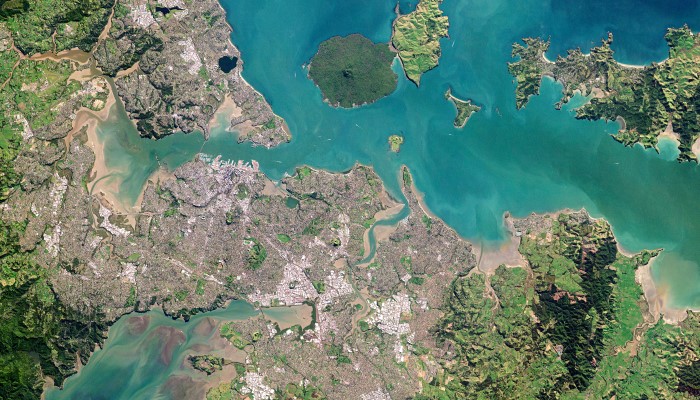
Local iwi
There are many iwi with ancestral relationships to Tāmaki Makaurau. This page lists iwi and websites which have information about their histories.
Learn about local iwi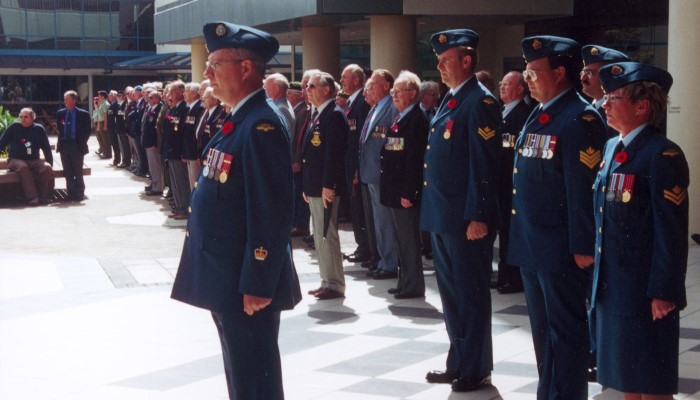
Changing views on conflict
This entry recommends resources to find out how New Zealand's involvement and views of conflict have changed over time, and how wars are commemorated. It also looks at New Zealand's work with the United Nations and current ideas of national identity.
Learn about changing views on conflict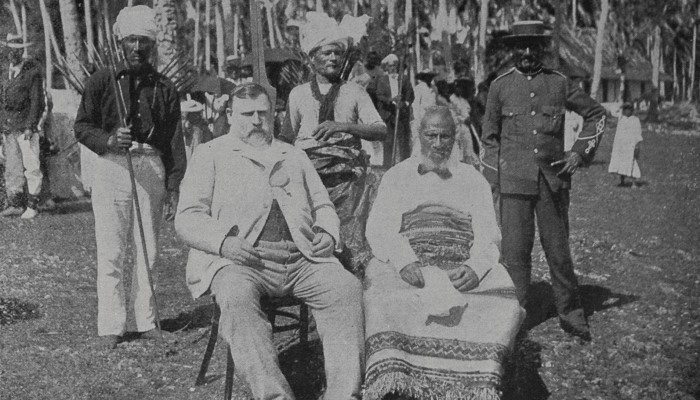
Colonial power in the Pacific
This entry has collections and websites to help explore the history of New Zealand's presence and colonial power in the Pacific. It has examples of the rise of independent Pacific nations and how they sustained their culture and presence in the Pacific.
Learn about colonial power in the Pacific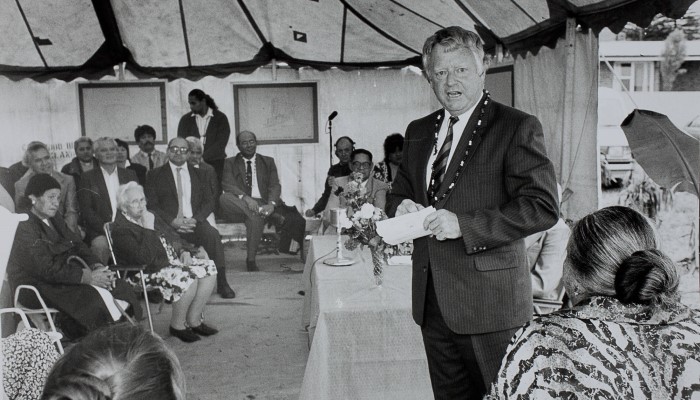
Decolonising the Pacific
This entry will help you find the best websites and collections to explore the decolonisation of the Pacific, including Aotearoa New Zealand's continued interests in the region.
Learn about decolonising the Pacific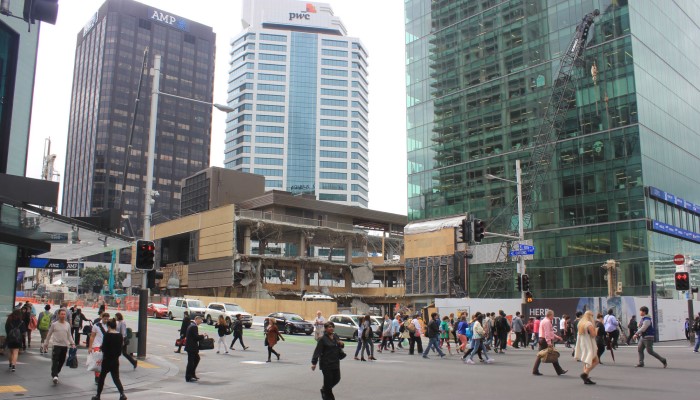
Economic independence and vulnerability
This entry will help you find information about the history behind Auckland's economic progress and independence, and the factors that impacted it.
Learn about economic independence and vulnerability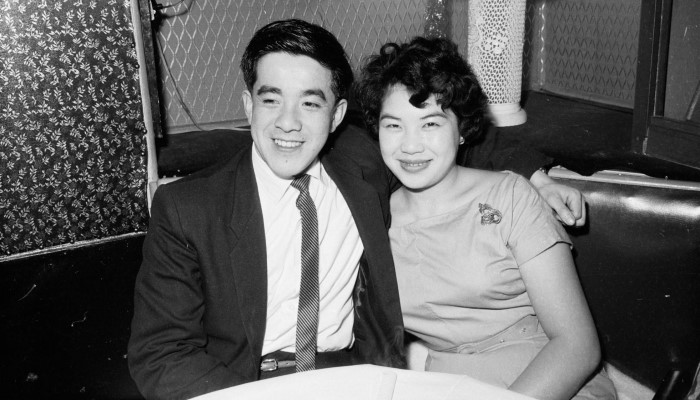
Finding a place in Aotearoa New Zealand
Since the 1700s, new people have immigrated to Aotearoa. Some came in search of a better way of life or because their country was no longer safe. Newcomers could experience racism and discrimination. They also helped shape New Zealand as a country.
Learn about finding a place in Aotearoa New Zealand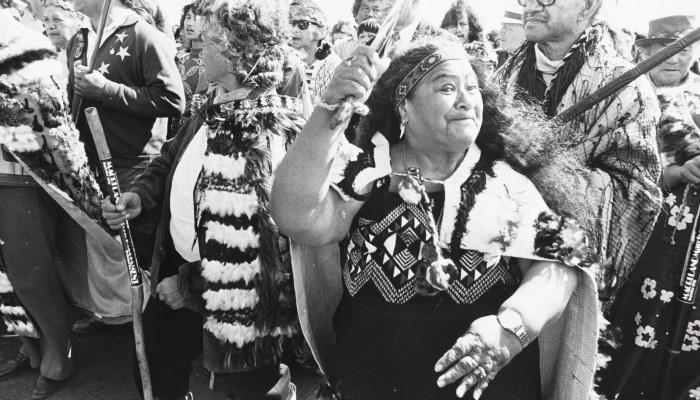
Mana in Māori society
This entry has websites to help you understand the different meanings of mana and its importance in political, social and traditional relationships in Māori society.
Learn about mana in Māori society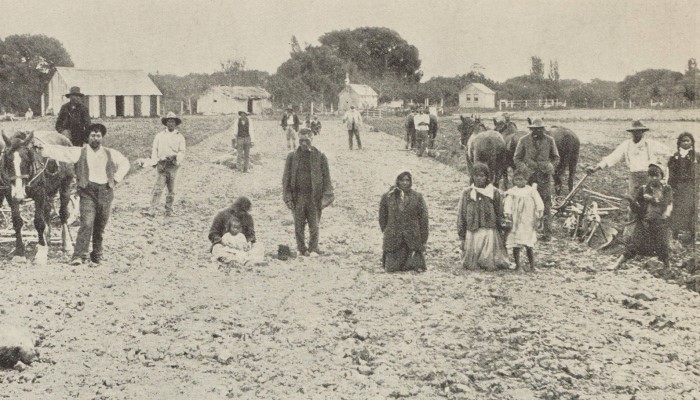
Māori economy: opportunities and challenges
This entry will help you find the best websites and databases that explore the history and development of the Māori economy including the challenges Māori faced from the New Zealand Wars, land sales and decisions made by the Native Land Court.
Learn about māori economy: opportunities and challenges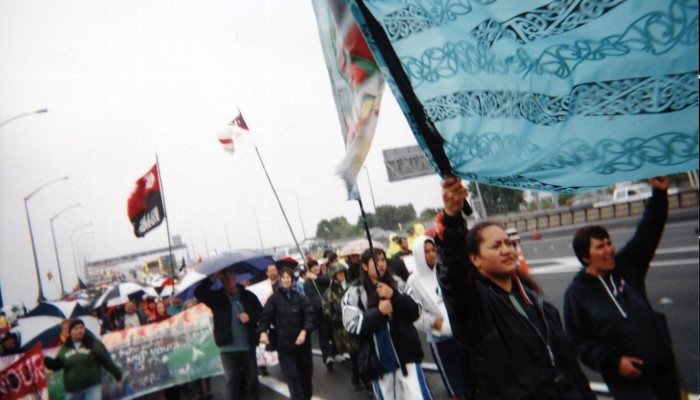
Sovereignty vs rangatiratanga: wars, laws and policies
This entry recommends websites where you can find information about the impacts of land laws on Māori, the New Zealand Wars, and attempts by Māori to find justice and build a relationship with the Crown.
Learn about sovereignty vs rangatiratanga: wars, laws and policies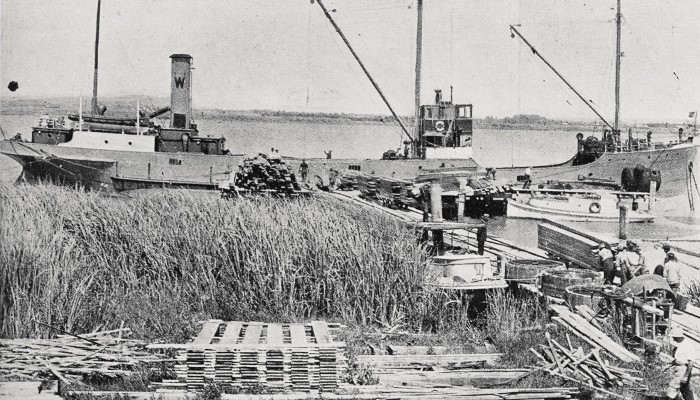
Technology and economic development
This entry will help you understand how advances in technology and land acquisition developed Auckland's economy but greatly impacted Māori and their economy.
Learn about technology and economic development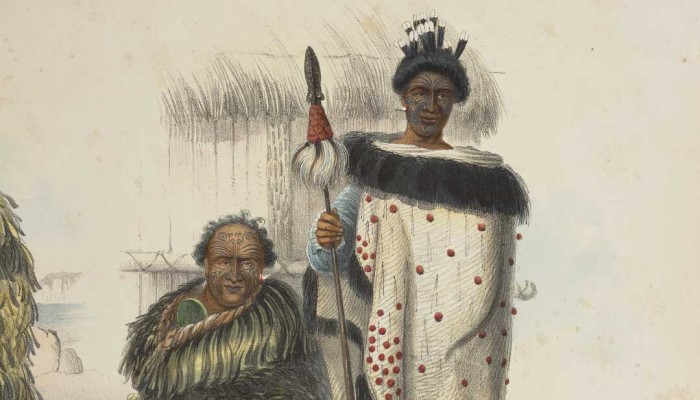
Te Tiriti o Waitangi
This entry recommends websites and collections to find information about He Whakaputanga o te Rangatiratanga o Nu Tireni | The Declaration of Independence and the Treaty of Waitangi | Te Tiriti o Waitangi, their significance, and the signatories.
Learn about te Tiriti o Waitangi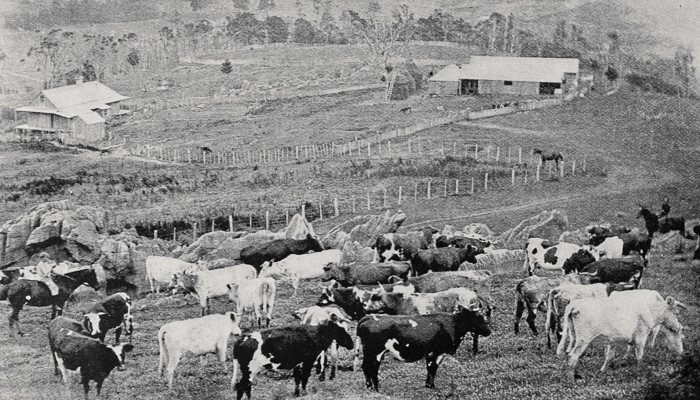
Transforming environments
This entry explores changes made by settlers to Aotearoa's natural environment, their naming of places and features, and efforts to conserve and restore its natural beauty.
Learn about transforming environments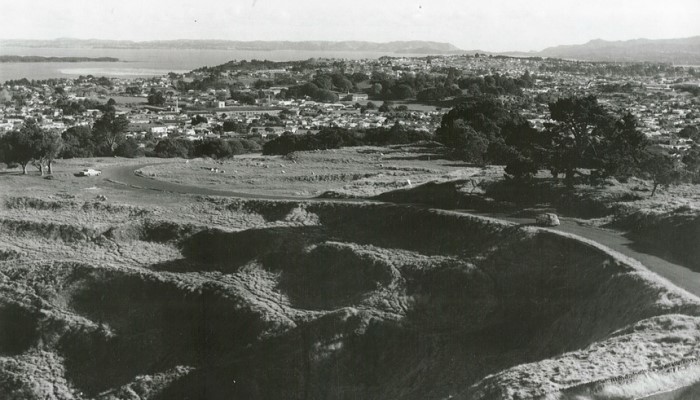
Transforming te taiao
This entry will help you find information on the changes made to the environment by pre-European Māori, and their care and connections to te taiao (the natural world).
Learn about transforming te taiao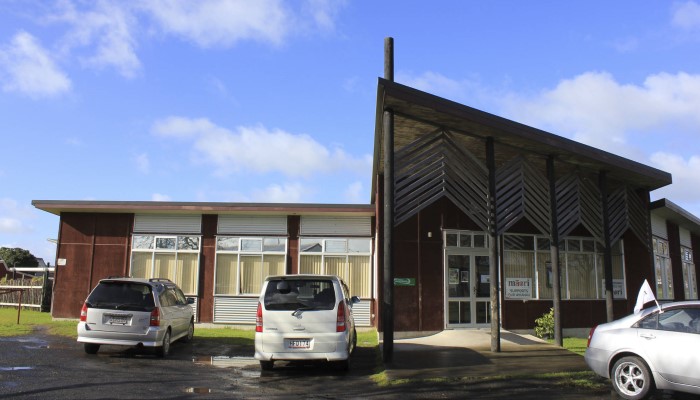
Urbanisation and being Māori
This entry will help you find information about Māori migration to cities, their challenges, and what this meant for their identity as Māori. You will also find information about some protests Māori were involved in to challenge political and social ideas.
Learn about urbanisation and being Māori
